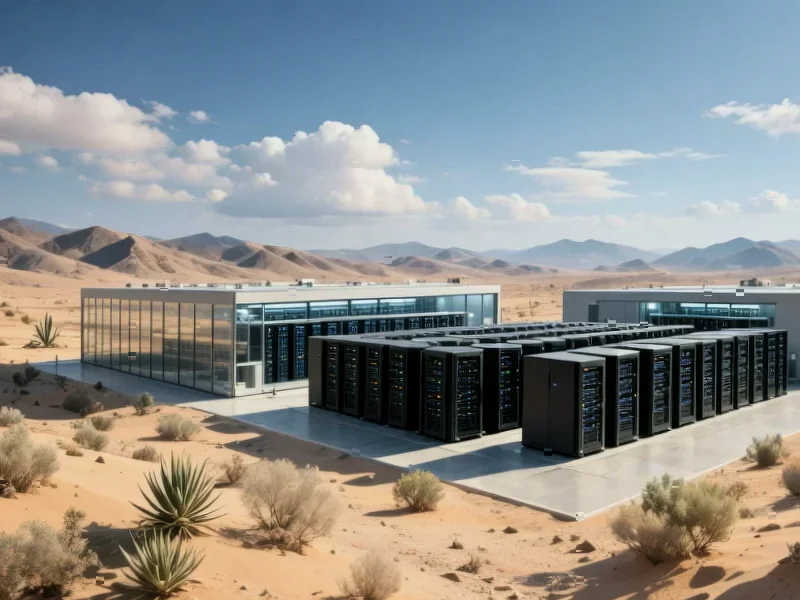According to CNBC, Saudi Aramco CEO Amin Nasser revealed the kingdom’s ambitious plan to become a global AI leader by leveraging its cheap natural gas and renewable energy. Aramco plans to acquire a significant minority stake in Humain, Saudi Arabia’s national AI champion that launched in May and is majority-owned by the sovereign wealth fund PIF. The company is targeting capital expenditures of $52 billion to $58 billion this year, with a significant portion going toward boosting natural gas production by more than 60% by 2030. Nasser noted that AI data centers will consume almost four times the electricity of the global electric vehicle fleet by 2030, primarily powered by gas but also renewables. Meanwhile, he sees oil demand growing by 1.1 million to 1.3 million barrels per day this year and nearly the same in 2026, driven by emerging economies.
<h2 id="energy-advantage”>The Obvious Energy Play
Here’s the thing – this isn’t exactly subtle. Saudi Arabia basically looked at the AI boom and said, “Hey, we’ve got the cheapest energy on the planet, and AI needs insane amounts of power.” They’re playing to their absolute strongest hand. Nasser wasn’t shy about it either – he straight up said they have the lowest cost renewable and natural gas available anywhere. When you’re talking about data centers that could consume four times more electricity than the entire global EV fleet by 2030, that energy cost advantage becomes absolutely massive.
Aramco’s Massive Bet
Let’s talk about the scale here. Aramco is planning to spend up to $58 billion this year alone, with a huge chunk going toward boosting gas production by over 60% by 2030. That’s not just tinkering around the edges – that’s a fundamental strategic shift. And the Humain investment isn’t some side project either. They’re positioning this as their national AI champion with ambitions to become the third biggest player globally behind only the US and China. That’s… ambitious, to put it mildly.
But Oil Isn’t Going Anywhere
Now here’s where it gets interesting. While they’re making these huge AI and gas bets, Nasser was very clear that oil demand remains strong and is actually growing. He’s projecting 1.1-1.3 million barrels per day growth this year and similar numbers for 2026. So it’s not like they’re abandoning their core business – they’re essentially saying they can do both. Fund the energy transition and AI ambitions with oil money while still growing their traditional business. It’s a hedge that very few countries can actually pull off.
What This Means for Global AI
If Saudi Arabia actually executes on this vision, it could seriously disrupt the current AI landscape. Right now, the US and China dominate, but energy costs are becoming such a huge factor that countries with cheap power have a real advantage. We might see more AI development and data center construction moving to energy-rich regions rather than traditional tech hubs. The question is whether they can attract the talent and build the ecosystem to compete with Silicon Valley and Chinese tech giants. Having cheap energy is one thing – building a world-class AI industry from scratch is another challenge entirely.




